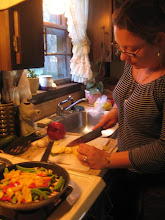In "Writing in the Twenty-First Century," Kathleen Blake Yancey describes the history of experiential and curricular writing in the US, noting that today we are in a completely different era in which writing acts as participation and is available to students in ways to which we must adapt our teaching and composing models. She writes that:
We can and should respond to these new composings and new sites of composings with new energy and a new composing agenda. Let me also suggest that an historical perspective like the one I’ve sketched out here helps us understand an increasingly important role for writing: to foster a new kind of citizenship, one that has roots in an earlier time but that is being reimagined today.I completely agree with this statement, but wonder how we can do so in such a way that avoids the "creepy treehouse" model theorized over the TechRhet listserv. Creepy treehouses are spaces adults build for young(er) people in attempts to attract them to the spaces or activities they want the youth to attend to by making it seem like the spaces youth enjoy. Students or young people see right through the attempt, of course, and often play along but half-heartedly. The difference is about self-sponsorship (a la Brandt). We want to take our agendas for writing development to the places where young people already enjoy writing, but even using these spaces their writing is no longer self-sponsored; it becomes compulsory. What sort of means are available for making room for truly self-sponsored writing in the 21st century writing classroom???

